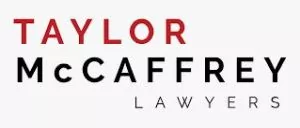Certified B Corporations are for-profit enterprises that have made the deliberate choice to conduct business in a way that balances profit and purpose in order to create benefits for stakeholders in addition to owners. The B Corp Certification is a third-party certification process administered by B Lab, a non-profit organization dedicated to "transforming the global economy to benefit all people, communities, and the planet."1
B Corp Certification is available for any sized for-profit business with at least one year of operations. Notwithstanding this restriction, the steps outlined in this article may also be taken by start-up or early stage companies who wish to put themselves on the path to becoming B Corp Certified upon eligibility.
A main component to the B Corp Certification process is the completion of B Lab's B Impact Assessment (BIA). B Corp Certification requires a company to meet a minimum verified total score across certain impact areas, those being: Governance, Workers, Community, Environment, and Customers. Another important element of the certification process is that your company must meet, or be prepared to meet, certain legal requirements.
Generally speaking, to satisfy the B Corp Certification legal requirements, a company must align its legal structure with its mission. This requirement of adopting mission aligned governance serves a number of purposes.
First, it cements the mission and the values of the company into its corporate DNA. For corporations in most of Canada, this requirement is met by including specific language into the company's articles of incorporation. Corporations in British Columbia can meet the legal requirement by electing benefit company status.
For Manitoba corporations wanting to meet these certification requirements, subject to any unanimous shareholder agreement establishing a different threshold, an amendment to the corporation's articles must be done by special resolution requiring not less than 2/3 of the votes cast by the shareholders who voted in respect of that resolution or a written resolution signed by all the shareholders entitled to vote on that resolution.
Making these changes to the articles of incorporation serves to provide the directors of the corporation with additional protection and permission to conduct business in a way that considers not only the best interests of the corporation and its shareholders, but also of the corporation's employees, suppliers, creditors and consumers, as well as the government, the environment, and the community and society in which the corporation operates.
For member owned businesses, similar amendments to the by-laws may be necessary.
Meeting these legal requirements will also ensure that the mission is protected through time, including through any changes in management or ownership.
The timeline for making these legal changes set out by B Lab differs based on the size and structure of your business. Generally speaking, companies with less than 10 employees must meet the legal requirements prior to achieving Certification. Companies with 10 or more employees, including Credit Unions, may have up to one year after certification to complete this process.
How else can a lawyer help with the B Certification process? Another step your businesses may need to take in order to improve your BIA score is to formalize policies, including documenting the positive standards and practices that already exist within your company. This makes it more likely that these policies will be maintained over time.
It may also be necessary to review and consider the implications of any shareholder or owner agreements that are currently in place before any changes are made to an existing business governance framework.
While just about any type of existing for-profit business structure can pursue B Corp Certification, anyone setting out with an intention to have their future business B Corp Certified may also wish to seek advice on what business structure may best suit their specific needs and goals.
Footnote
1. https://bcorporation.net/about-b-lab
The content of this article is intended to provide a general guide to the subject matter. Specialist advice should be sought about your specific circumstances.


